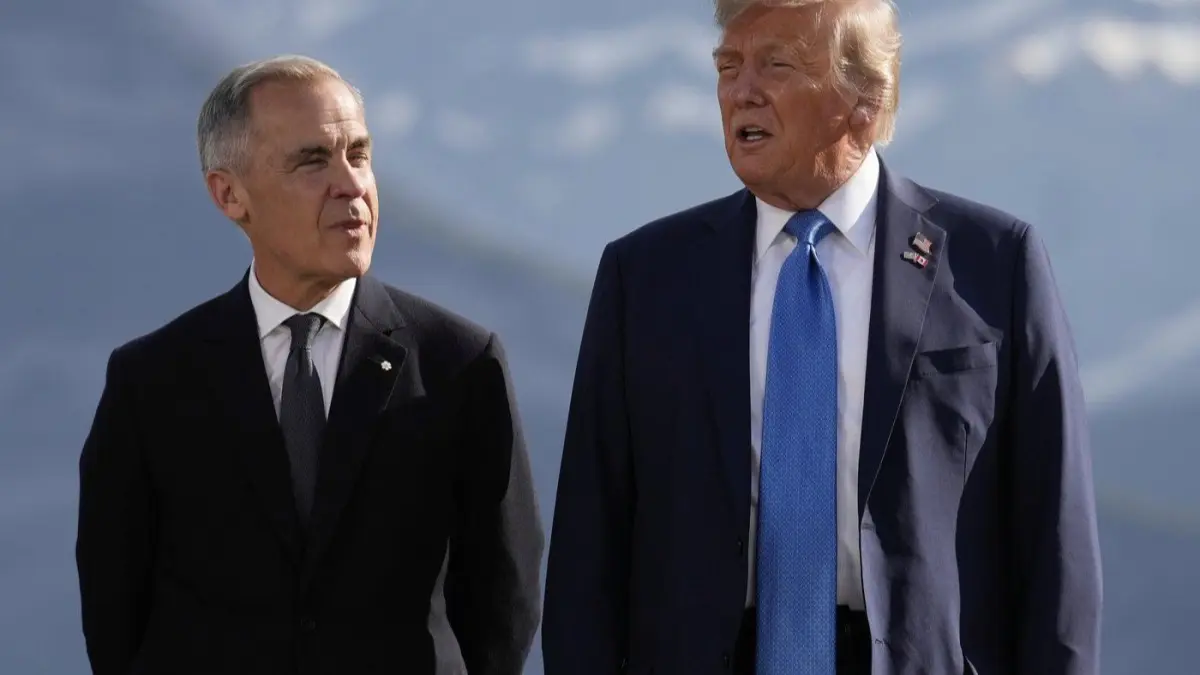Updated 1 July 2025 at 01:31 IST
After Trump's Threat, Canada Drops Digital Services Tax to Revive Trade Talks with US
Canada’s digital services tax, first proposed in 2020, was designed to ensure that major U.S. tech companies like Meta, Amazon, Google’s parent company Alphabet, Uber, and Airbnb paid their fair share on revenues generated from Canadian users.
- World News
- 2 min read

After US President Donald Trump's threats, Canada has scrapped its controversial digital services tax on U.S. tech giants, paving the way for renewed trade negotiations with the United States. The decision, announced late Sunday by Prime Minister Mark Carney, comes after intense pressure from the Trump administration, which viewed the tax as a direct challenge to American interests. Both nations aim to finalize a trade deal by July 21, 2025.
Here Is What You Need To Know
Canada’s digital services tax, first proposed in 2020, was designed to ensure that major U.S. tech companies like Meta, Amazon, Google’s parent company Alphabet, Uber, and Airbnb paid their fair share on revenues generated from Canadian users. The 3% levy, applied retroactively to 2022, was expected to generate over US$2 billion in its first year and more than US$7 billion over five years.
The tax targeted digital services such as online advertising, social media platforms, and ride-sharing apps, addressing complaints that these companies were profiting heavily in Canada without contributing adequately to federal tax revenues.
However, the tax became a major sticking point in U.S.-Canada relations. On Friday, June 27, 2025, US President Donald Trump sharply criticized the policy, calling it a “direct and blatant attack on our country.” In response, he announced the suspension of all trade discussions with Canada.
Advertisement
Canada’s Swift Reversal
The abrupt decision to repeal the tax came after intense diplomatic back-and-forth. On Sunday, June 29, 2025, Prime Minister Carney announced that Canada would abandon the levy to facilitate the resumption of trade talks. White House economic adviser Kevin Hassett, speaking on Fox News on Monday, June 30, 2025, welcomed Canada’s decision, stating it “absolutely” cleared the path for renewed negotiations.
The White House press secretary went further, declaring, “It is very simple: Prime Minister Carney caved to President Trump,” highlighting the administration’s view of the tax repeal as a victory for U.S. interests.
Advertisement
The digital tax was just one piece of a broader trade dispute between the U.S. and Canada, which are deeply interconnected through the US-Mexico-Canada Agreement (USMCA). Canada, the U.S.’s largest trading partner for goods like steel, aluminum, and autos, currently faces steep tariffs: 50% on steel and aluminum exports and 25% on automobiles, alongside blanket tariffs on other goods exported outside the USMCA framework. These tariffs, implemented by the Trump administration, have strained Canada’s economy, prompting Carney to prioritize their removal as part of the ongoing negotiations.
Published By : Sagar Kar
Published On: 1 July 2025 at 01:31 IST
